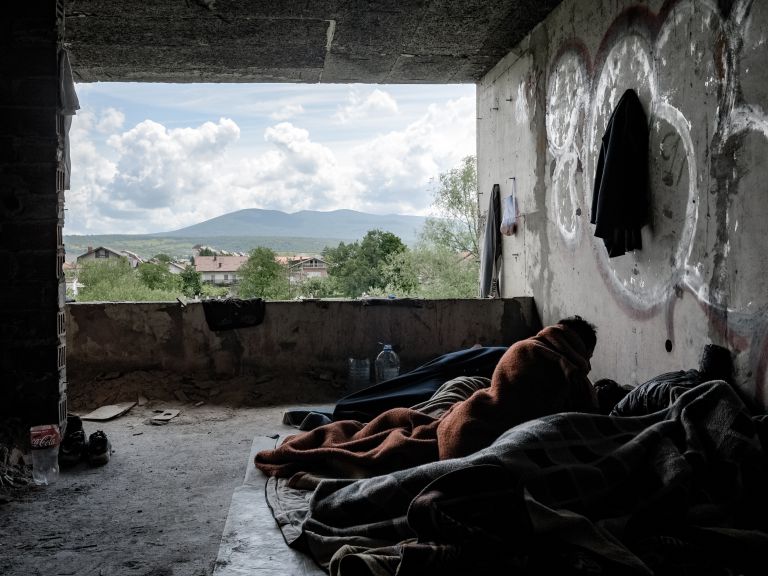Project Detail: The game
Contest:
Reportage and Documentary 2019
Brand:
LuganoPhotoDays
Author:
Filippo Taddei
Status:
Selected
Project Info
The game
In 2018, at least 20,000 migrants entered Bosnia. Every day hundreds of people fill their bags with the minimum necessary to face "the game", as they call it.
The harsh Serbian winter is over, with the knowledge that is impossible to pass the HUngarian border, traffickers have opened a route through Bosnia. At the beginning of 2018 the first adventurers appeared on the streets of Sarajevo, according to the UNHCR In 2018 at least 20,000 people entered Bosnia. With the tourist season on the doorstep, the Bosnian government found itself completely displaced and unprepared, unable to provide any kind of immediate response. In Sarajevo migrants stop a few days, the time to find the trusted trafficker, to negotiate the price and get the money, then they head to Bihac or Velika Kladusha, towns two hours from each other on the Croatian border, at the point where Slovenia, and therefore the Schengen area, is closer. Camped in dilapidated buildings not completed for the outbreak of war, men, boys, women and children of any age, religion, status. One bathroom for every 200 people, one meal a day for the lucky ones and some clothes every 10 days.
At the doors of Europe, people live like in the slums. Within a few weeks the traffickers arrived at the site with their complete packages. Car rides, fake passports, passages in trucks, prices range from 2000 to 4000 euros per person. Every day hundreds of people fill the backpack with the minimum necessary to face "the game", as they call it. There is no talk of anything else, in the booming shouting of the camps where Pakistani, Arab, Pahstu and Farsi become a unique and incessant chant.
Who leaves, with good clothes to go unnoticed, and who comes back, tired and dirty after days of walking with foot sores and empty pockets because, as a matter of practice, the Croatian police take away the money and breaks the cell phones, pulling them to ground or breaking the charging cable entry. In fact, the mobile phone is the most important object, together with a power bank, to make the way through the woods following the GPS. Cell phone in hand they travel for 4 to 10 days, but very few succeed because Croatian citizens are required to report every suspect, and the woods are perpetually sieved by the police. And so, all of a sudden, they find themselves again in Bihac or in Velika, without cell phone, money, clothes but maybe with a few bruises.


















